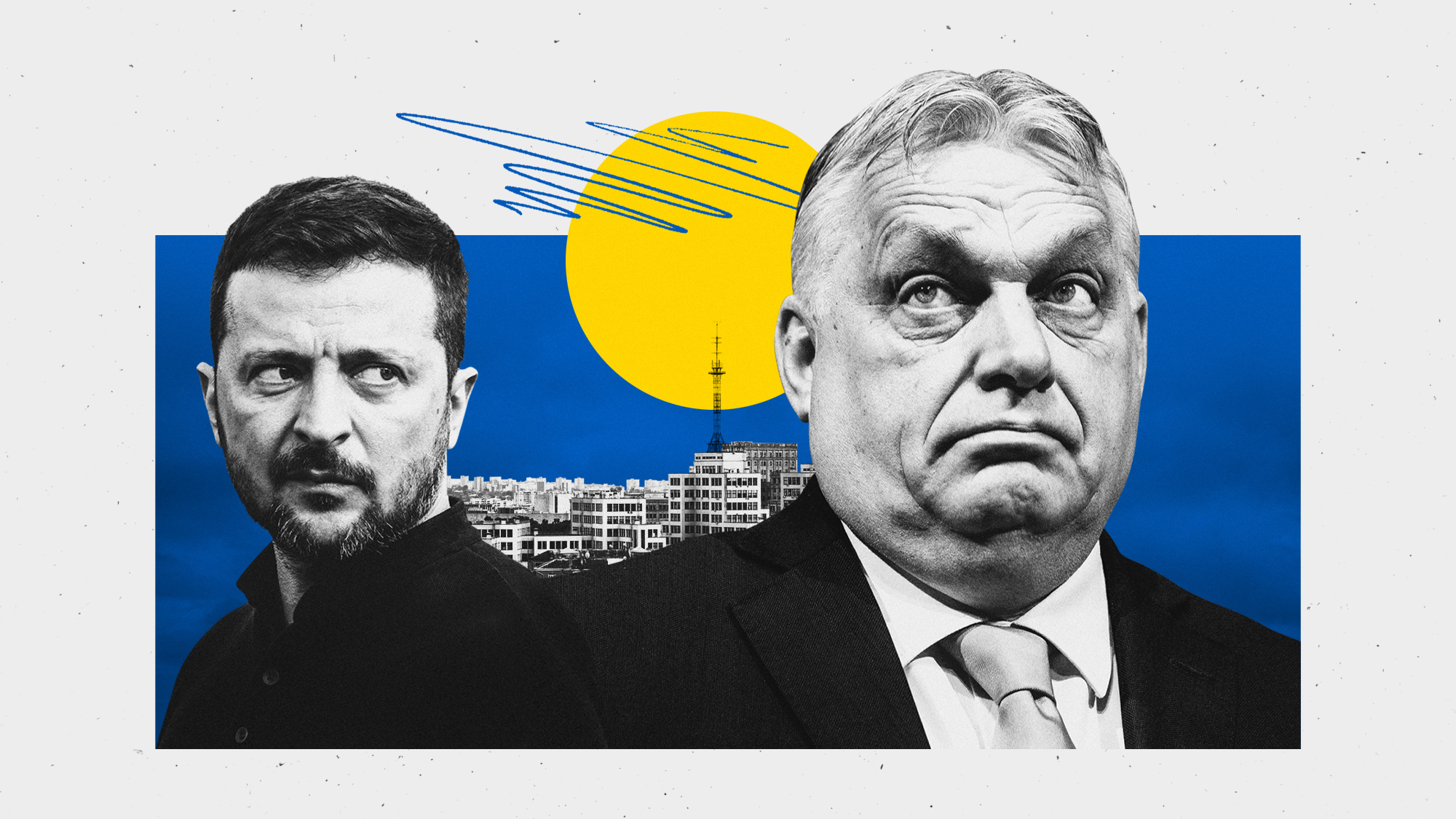Orbán in Kyiv: will visit from Putin ally help Zelenskyy and Ukraine?
Hungarian PM's surprise visit focuses on 'possibilities of achieving peace' ahead of six-month EU presidency that can shape bloc's agenda

A free daily email with the biggest news stories of the day – and the best features from TheWeek.com
You are now subscribed
Your newsletter sign-up was successful
Viktor Orbán arrived in Kyiv today, marking the first time the EU's most pro-Moscow leader has visited Ukraine since it was invaded by Russian forces over two years ago.
In what was widely described as a "surprise" trip, the Hungarian prime minister met Ukraine's President Volodymyr Zelenskyy and other senior officials. Their discussions focused on the "possibilities for achieving peace, as well as current issues in Hungarian-Ukrainian bilateral relations", his spokesman Zoltan Kovacs said on X.
What did the commentators say?
Orbán's visit to Ukraine is a "rare gesture in a relationship that long been marred by tensions", said The Hill.
The Week
Escape your echo chamber. Get the facts behind the news, plus analysis from multiple perspectives.

Sign up for The Week's Free Newsletters
From our morning news briefing to a weekly Good News Newsletter, get the best of The Week delivered directly to your inbox.
From our morning news briefing to a weekly Good News Newsletter, get the best of The Week delivered directly to your inbox.
He is considered Russia's "closest EU ally" and has "routinely blocked, delayed or watered down" European efforts to extend assistance to Ukraine and to sanction Moscow over its war, "frustrating both Zelenskyy and other EU leaders".
Orbán is one of the few European leaders not to have visited Ukraine since Russia invaded in February 2022, but has controversially met Russian President Vladimir Putin during that time.
Their "close relationship" has "frequently come under scrutiny", said CNN, but their bond is "underpinned by both economic cooperation and some shared values".
Both leaders have enacted anti-LGBTQ policies and clamped down on freedom of speech in their respective countries. Hungary has supported Russia at the United Nations and rejected EU sanctions following Putin's aggression in Ukraine as early as 2014, after Russia illegally annexed Crimea.
A free daily email with the biggest news stories of the day – and the best features from TheWeek.com
Their face-to-face meeting in China last October left Western officials "seething", said The Guardian. In a written statement to the paper, the Czech president and former Nato general Petr Pavel said: "As it has been repeatedly shown, Putin does not meet European leaders with the aim of achieving peace in Ukraine."
Pavel went on: "He is only holding these meetings with the aim of breaking the unity of European countries and the entire democratic world. We should not fall for his tactics."
Budapest has justified its "hardline position" on Ukraine, said the Financial Times, in part by claiming Kyiv is failing to meet its demands in guaranteeing the rights of the country's Hungarian minority in the west of the country. This has been used by Orbán to repeatedly hold up EU accession talks with Ukraine.
Behind the scenes, said Politico, Kyiv and Brussels have been engaged in "intensive diplomacy" with Budapest to address its concerns and guarantee legal protections for minorities in exchange for Orbán giving the green light to start the formal process for Kyiv to join the EU.
What next?
Orbán's visit to Kyiv comes a day after Hungary took over the six-month rotating EU presidency, a position that has "little real power but can be used to set the tone of the bloc's agenda", said The Hill.
Worried about Hungary's democratic record and positive stance towards Russia, EU lawmakers hurried through a new set of sanctions against Moscow and launched membership talks with Ukraine before Hungary assumed the presidency on 1 July.
Orbán is the "outlier" with regard to Europe's support for Ukraine in the war against Russia, and his opponents in the European Parliament expect "further clashes" over the issue with his Fidesz MEPs, said Monica Porter in The Spectator.
Diplomats are "worried" about how EU membership talks for Ukraine and Moldova will progress "now Hungary holds the presidency". While Orbán is in favour of admitting Moldova, he has stated categorically that Kyiv is not ready for membership, especially while the war is ongoing. "Time and again, Orbán has angered Western leaders by seeming to take Vladimir Putin’s side over Volodymyr Zelenskyy's", said Porter.
Nato members are due to meet in Washington next week to mark the 75th anniversary of the Western defence alliance, and the agenda is expected to be dominated by long-term planning on Ukraine and its eventual accession. This will be followed by a meeting of the European Political Community (EPC), a forum for 47 European countries from inside and outside the EU to discuss the continent's strategic challenges.
There is a strong likelihood Zelenskyy and Orbán will attend one or both of these high-level events. The Hungarian PM "may have had this in mind when timing this trip to Kyiv, ensuring that his first meeting with Ukraine's president since the start of the war was not in such a public and high-stakes diplomatic setting", said CNN.